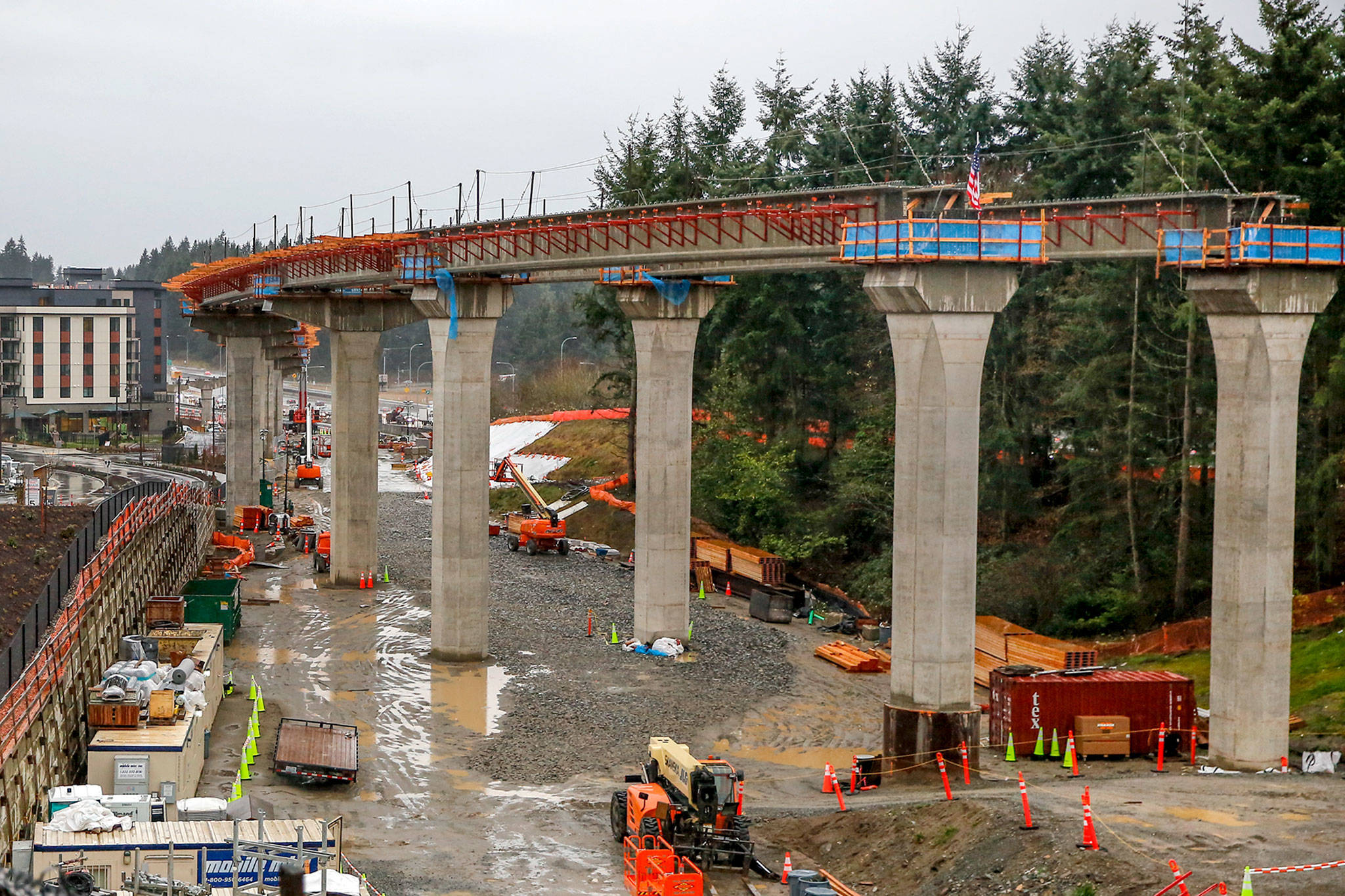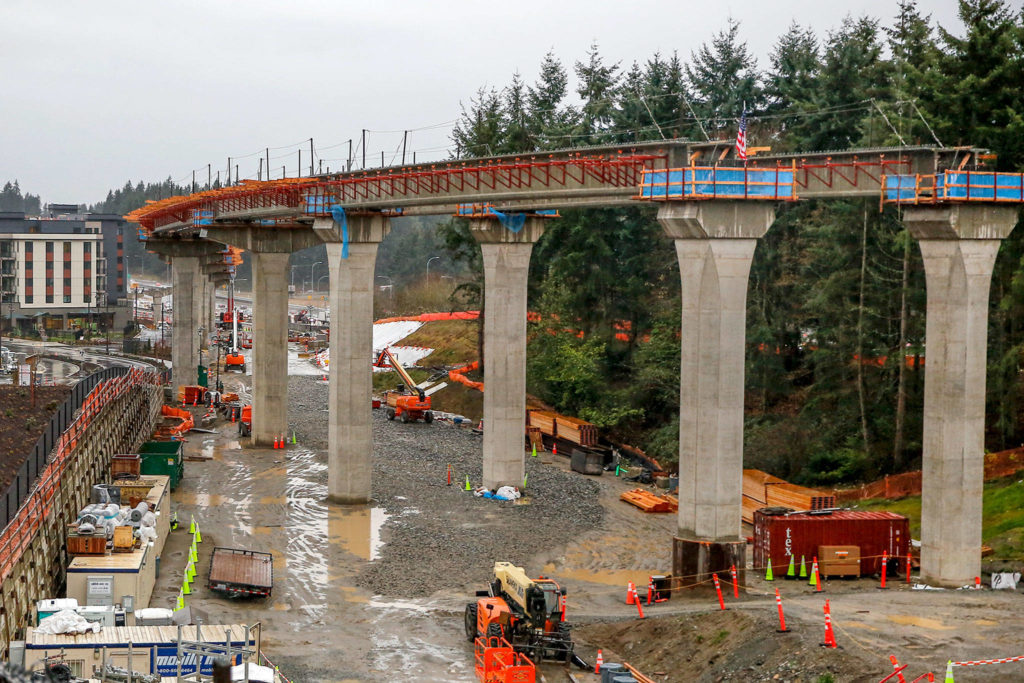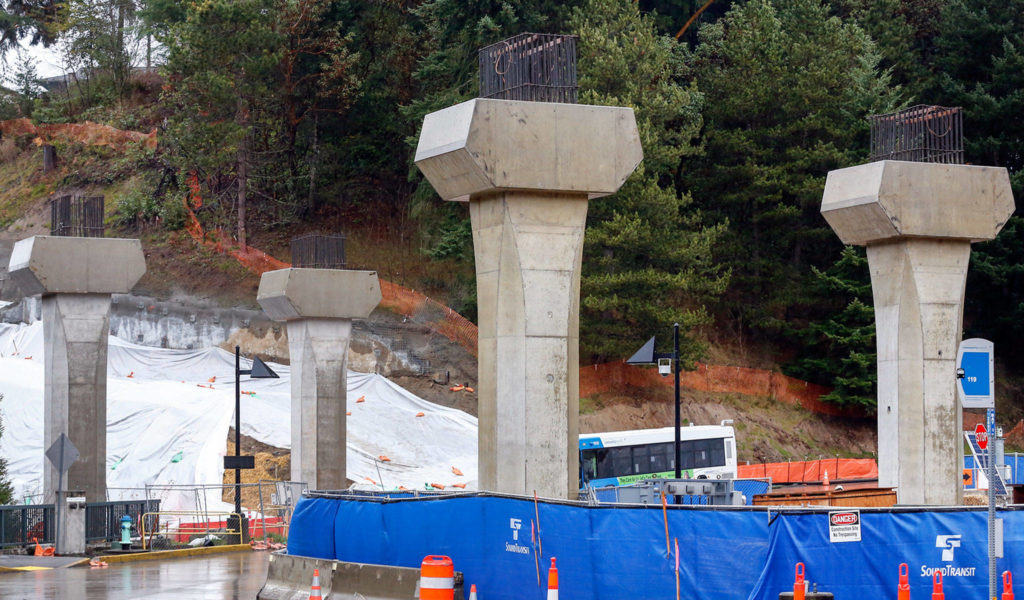EVERETT — Sound Transit projects in the years ahead could be billions of dollars over their early estimates, agency leaders recently announced.
Work on the voter-approved ST3 projects, including the Everett Link light rail extension, could create an $11.5 billion budget gap. Soaring property prices and higher construction labor and material expenses, coupled with decreased revenue during the pandemic, are the driving factors, Sound Transit Deputy CEO Kimberly Farley said during the agency’s executive committee meeting Jan. 7.
“Unlike the 2010 recession where major construction came to a near halt, this recession is so far turning out to be a double bind where revenues fall and costs during this continue to rise,” Farley said.
Sound Transit staff were updating the long-range financial plan to assume 36% increases based on their recent Ballard, West Seattle and Tacoma Dome Link and south operations and maintenance facility estimates that showed costs rising between $4.8 billion and $6.1 billion. At that rate, building light rail to Everett, Issaquah/Kirkland and Tacoma Community College, and an operations and maintenance facility in Snohomish County could cost another $2.7 billion, Farley wrote in a memo.
“It’s obviously sobering,” said Paul Roberts, an Everett City Councilman and Sound Transit Board vice chairman. “We’re going to have to make changes in scope and scale, I just don’t see how we get there without that.”
When Sound Transit put the tax measure on the ballot in 2016, it came with a nearly $54 billion price tag to build light rail to Everett, Federal Way, Issaquah, Tacoma, plus Seattle’s Ballard and West Seattle neighborhoods, as well as expanding bus service throughout the district that spans parts of King, Pierce and Snohomish counties. Those estimates were made in 2015, when the median home sale price in Snohomish County was $359,800. At the end of last year, that price rose to $495,100, according to data from the University of Washington Center for Real Estate Research.
The estimates accounted for some cost increases and revenue declines, but what’s happened in recent years and especially in 2020 surpassed those figures.
“How many of us would have predicted a COVID-induced recession?” Roberts said.
Sound Transit is hiring a consultant for an independent review of its cost projections, which some board members and staff expect to verify the agency’s previous estimates. The review is supposed to start later this month and staff expect it to be done by April — in time for the board’s realignment process that could delay, pare back or reshape ST3 projects.
There aren’t many options available for Sound Transit to address rising construction and property costs, the latter of which could be due to the agency’s own success at spurring development and investment.
“In some locations, redevelopment is further raising the cost of property,” said Don Billen, Sound Transit’s executive director of planning, environment and engineering.
That’s been felt in Lynnwood, where land values near the Lynnwood City Center light rail station under development have more than doubled in the past five years.
Sound Transit CEO Peter Rogoff said the agency wants to be cautious about how early it buys property when plenty of decisions remain for the rail line alignment. He cited the agency’s purchase of property on First Hill in Seattle for a station that ended up not being built, but was sold to be developed for affordable housing, as a positive example.
“There’s a tension in knowing what property you need to get so early in the process and jumping out there and purchasing property with taxpayer funds with that level of uncertainty,” he said.
King County Executive Dow Constantine said the higher costs illustrate why light rail and transit expansion is needed because as property becomes more valuable, reducing transportation costs becomes critical.
“Too many people and not enough of essentially everything, including transportation,” he said. “This system would have been a lot easier to build 50 years ago. But we did not have the will, we did not have the vision then. The same could be said of our descendants 50 years from now if we don’t act.”
The Sound Transit board’s next meeting is scheduled for 1:30 p.m. Jan. 28 and can be watched via livestream at https://bit.ly/2LNEErn.
Ben Watanabe: bwatanabe@heraldnet.com; 425-339-3037; Twitter @benwatanabe.
Talk to us
> Give us your news tips.
> Send us a letter to the editor.
> More Herald contact information.



























